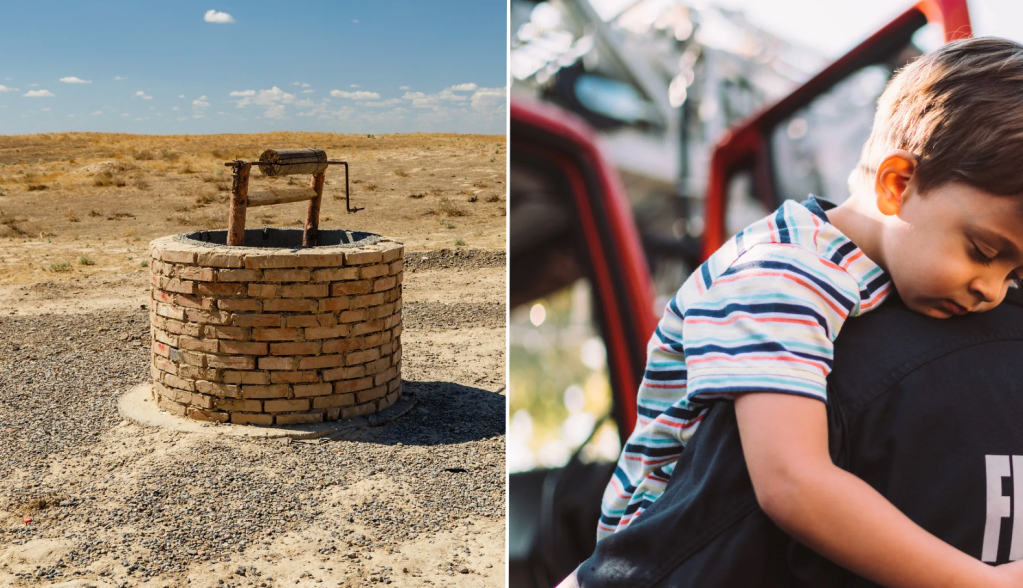This is a picture of a monkey that has never been photographed before. Ever.
It was taken by primatologist Lieven Devreese, who, together with his colleague Gaël Elie Gnondo Gobolo, were the first to definitively document the existence of Bouvier’s red colobus.
Which is pretty ridiculously cool.
I spoke with Devreese via email and congratulated him on finally discovering the elusive red colobus.
He quickly and humbly corrected me.
“It is one of the 17 species of red colobus, but probably the most neglected one. Some conservationists considered that the species might have been extinct. So that’s why I wanted to look for them.”
Devreese and Gobolo traveled to the Republic of the Congo in Central Africa in February 2015 to conduct the search.
You know. Just two guys. Looking for a monkey that might or might not exist.
Once on the ground, they met up with local guides who took them into swamp forests along the Bokiba River in the Ntokou-Pikounda National Park, where the monkey was rumored to live.
Swamp forests: pretty much what you’d expect.
“From the start it was clear that the local people know them,” Devreese said, “But because of the swampy terrain and because of hunting, it was not easy to find them in the forest.”
They searched for five days. On the last day of the expedition, Devreese was preparing to pack up when several members of the team reported that they had spotted a small group of monkeys up in the trees. The group walked for an hour until they heard a promising sound. So they crept closer…
…and boom!
Monkeys.
Since no one had ever really even seen Bouvier’s red colobus before, its decline is a bit of a mystery. Some of it, undoubtedly, is due to good ol’ habitat destruction and humans being jerks more generally. But according to Devreese, much of the reason the species is disappearing comes down to one word … that is made up of two words:
Bushmeat.
This is a steak. But imagine a monkey steak.
Turns out, people eat these monkeys.
It’s an extraordinarily tricky issue. On the one hand, many contend that hunting local wildlife, including primates, is tradition that stretches back many hundreds of years in some Central African communities, and outsiders should, respectfully, butt the heck out.
“As people from the western world I don’t think it is appropriate to prohibit the local small-scale hunting which the people living there have been doing for centuries.”
On the other hand, some conservationists argue that bushmeat hunting destroys ecosystems and drives already-threatened species to extinction.
They’re not mutually exclusive arguments by any means. But Devreese takes a longer view.
“As people from the western world I don’t think it is appropriate to prohibit the local small-scale hunting which the people living there have been doing for centuries,” Devreese explained to me. “Hunting is really part of their culture and they depend on the forest for their animal protein intake. But [in the past few decades,] the scale of this hunting has changed. It has become a commercial trade, so now people shoot as much as they can to make money.“
And it gets even more complicated. According to the United Nations Food and Agriculture Organization, the primary reason some members of Central and West African communities hunt bushmeat is food insecurity.
It’s a two-pronged problem that needs to be addressed two-prongedly.
Brazzaville, Republic of the Congo — a hub of the commercial bushmeat trade.
Helping poachers find alternate sources of income is absolutely crucial to limiting the production of commercial bushmeat. And educating potential consumers about the health risks of eating improperly prepared primate meat (HIV and Ebola are transmitted this way), could lead to a decrease in demand.
Hunting bushmeat for cultural reasons shouldn’t be outlawed. And some folks in Central Africa eat bushmeat because they have to, you know, eat. But getting clean water and alternate, sustainable food sources to them could help cut down on hunting.
It’s not going to be super easy to make all that happen overnight. But hey. Why not try?
The monkeys would really appreciate it.
Keep on rocking, critically endangered monkeys. You do you.
























